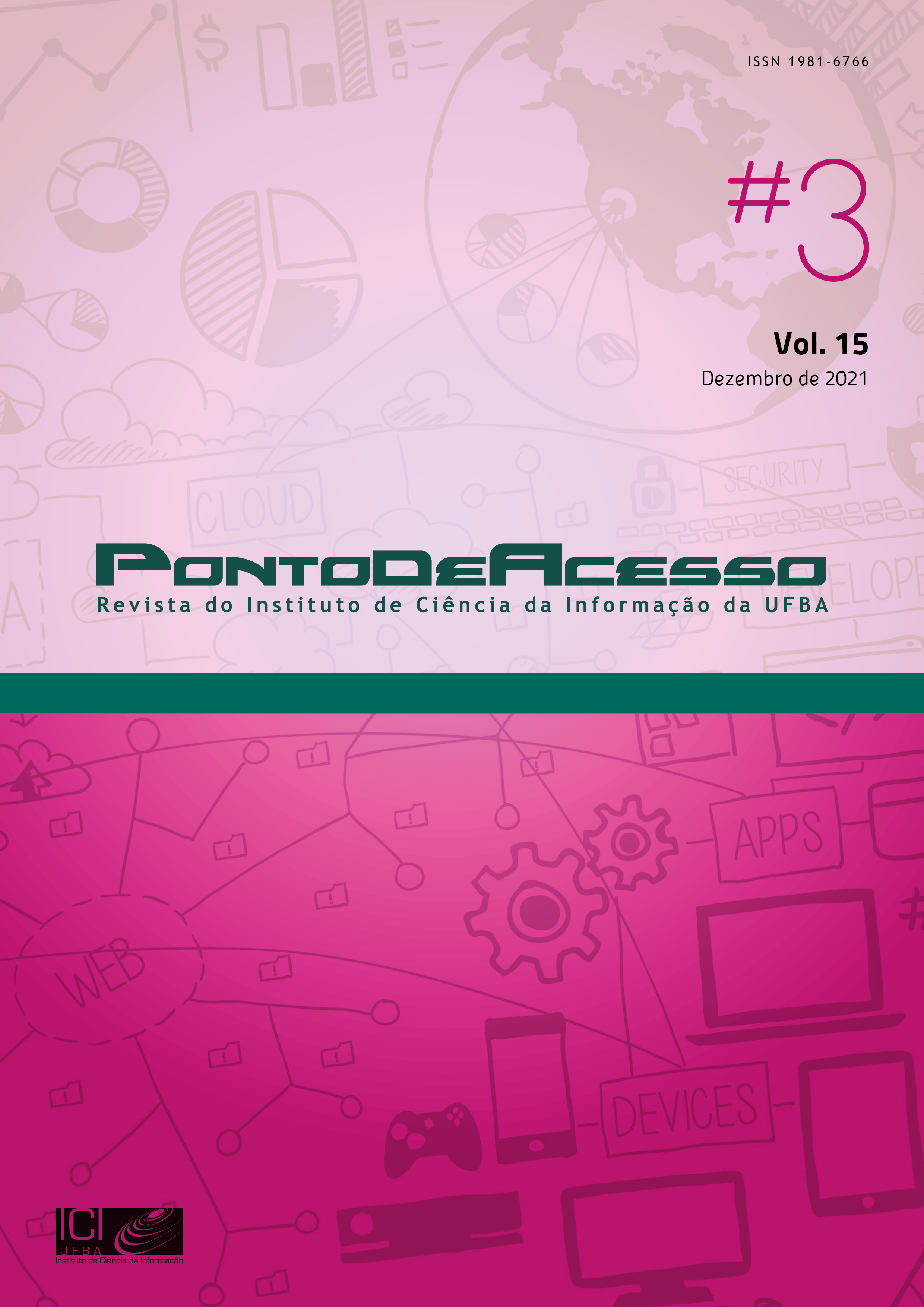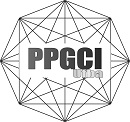THEORETICAL PRINCIPLES USED IN ONTOLOGY BUILDING AND THEIR INFLUENCE ON INFORMATION RETRIEVAL USING INFERENCES
DOI:
https://doi.org/10.9771/rpa.v15i3.47472Keywords:
Information Retrieval, Ontologies, Inferences, Concept TheoryAbstract
Several instruments of knowledge organization will reflect different possibilities for information retrieval. In this context, ontologies have a different potential because they allow knowledge discovery, which can be used to retrieve information in a more flexible way. However, this potential can be affected by the theoretical principles adopted in ontology building. The aim of this paper is to discuss, in an introductory way, how a (not exhaustive) set of theoretical principles can influence an aspect of ontologies: their use to obtain inferences. In this context, the role of Ingetraut Dahlberg's Theory of Concept is discussed. The methodology is exploratory, qualitative, and from the technical point of view it uses bibliographic research supported by the content analysis method. It also presents a small example of application as a proof of concept. As results, a discussion about the influence of conceptual definition on subsumption inferences is presented, theoretical contributions are suggested that should be used to guide the formation of hierarchical structures on which such inferences are supported, and examples are provided of how the absence of such contributions can lead to erroneous inferences.
Downloads
References
BARDIN, L. Análise de conteúdo. São Paulo: Edições 70, 2016.
BITI - Biblioteconomia, Informação e Tecnologia da Informação. Elaboração de tesauros documentários: tutorial. Disponível em: http://www.conexaorio.com/biti. Acesso em: 4 out. 2021.
BRACHMAN, R.; LEVESQUE, H. Knowledge Representation and Reasoning. Morgan Kaufmann, San Francisco, California, USA, 2004.
BRASCHER, M.; CAFÉ, L. Organização da Informação ou Organização do Conhecimento. In: ENCONTRO NACIONAL DE PESQUISA EM CIÊNCIA DA INFORMAÇÃO, 9., 2008, São Paulo. Anais […]. São Paulo: USP, 2008.
CAMPOS, L. M. Diretrizes para definição de recorte de domínio no reuso de ontologias biomédicas: uma abordagem interdisciplinar baseada na análise do compromisso ontológico. 2011. Tese (Doutorado em Ciência da Informação) − Universidade Federal Fluminense, Niterói, 2011.
CAMPOS, L. M. Ontologia para o relato de experimentos em um domínio científico: questões e aplicações. In: ENCONTRO NACIONAL DE PESQUISA EM CIÊNCIA DA INFORMAÇÃO, 16., 2015, João Pessoa. Anais [...]. João Pessoa: UFPB, 2015.
CAMPOS, L. M.; CAMPOS, M. L. de A.; CAMPOS, M. L. M. Ranganathans Canons applied to ontology engineering: a sample application scenario in biomedical ontologies. In: SEMINÁRIO DE PESQUISA EM ONTOLOGIA NO BRASIL (ONTOBRAS), 4., 2011, Gramado. Anais [...]. Gramado: UFRGS, 2011.
CAMPOS, M. L. A; GOMES, H. E. Princípios para modelagem de domínio: a posição de Barry Smith e de Ingetraut Dahlberg. Ciência da Informação, Brasília, DF, v. 41 n. 1, p. 81-94, 2014.
CAMPOS, M. L. A; GOMES, H. E. Ontology: Several Theories on the Representation of Knowledge Domains. Knowledge Organization, [S. l.], v. 44, n. 3, 2017.
CAMPOS, M. L. A; GOMES, H. E. The Onomasiological approach and the function of definitions in the elaboration of domain models in ontologies. In: INTERNATIONAL ISKO CONFERENCE, 15., 2018, Porto, Portugal. Proceedings […]. Porto, Portugal, 2018. p. 363-370.
CAMPOS, M. L. A. Modelização de domínios de conhecimento: uma investigação de princípios fundamentais. Ciência da Informação, Brasília, v. 33, n. 1, abr. 2004.
CAMPOS, M. L. A. O papel das definições na pesquisa em ontologia. Perspectivas em Ciência da Informação, Belo Horizonte, v. 15, n. 1, 2010.
CARRARA, M.; VERMAAS, P. E. The fine-grained metaphysics of artifactual and biological functional kinds. Synthese, [S. l.], n. 169, p. 125-143, 2009.
DAHLBERG, I. Knowledge organization and terminology: Philosophical and linguistic bases. International Classification, [S. l.], v. 19, n. 2, p. 65-71, 1992.
DAHLBERG, I. Knowledge Organization: A New Science? Knowledge Organization, [S. l.], v. 33, n. 1, 2006.
DAHLBERG, I. Ontical structures and universal classification. Bangalore: Sarada Ranganathan Endowment for Library Science, 1978c.
DAHLBERG, I. A referent-oriented, analytical concept theory of Interconcept. International Classification, [S. l.], v. 5, n. 3, p. 122-151, 1978b.
DAHLBERG, I. Teoria do conceito. Ciência da Informação, Rio de Janeiro, v. 7, n. 2, p. 101-107, 1978a.
DEBELLIS, M. A Practical Guide to Building OWL Ontologies Using Protégé 5.5 and Plugins. Oxford: University of Manchester, 2021. Disponível em: https://www.researchgate.net/publication/351037551_A_Practical_Guide_to_Building_OWL_Ontologies_Using_Protege_55_and_Plugins. Acesso em: 6 out. 2021.
DUTTA, B.; DEBELLIS, M. CODO: an ontology for collection and analysis of COVID-19 data. In: INTERNATIONAL JOINT CONFERENCE ON KNOWLEDGE DISCOVERY, KNOWLEDGE ENGINEERING AND KNOWLEDGE MANAGEMENT, 12., 2020. Proceedings […]. Budapest, Hungary, 2020. p. 76-85.
FERREZ, H. D. Tesauro de objetos do patrimônio cultural nos museus brasileiros. Rio de Janeiro: Prefeitura do Rio, Secretaria Municipal da Cultura. Produção Fazer Arte, 2016. Disponível em: http://tesauromuseus.com.br/download/tesauro.pdf. Acesso em: 6 out. 2021.
GANGEMI, A.; GUARINO, N.; MASOLO, C.; OLTRAMARI, A.; SCHNEIDER, L. Sweetening ontologies with Dolce. In: KNOWLEDGE ENGINEERING AND KNOWLEDGE MANAGEMENT: ONTOLOGIES AND THE SEMANTIC WEB, 13., 2002, Sigüenza, Espanha. Proceedings […]. Berlin: Springer, 2002. p. 166-181.
GÖDERT, W.; HUBRICH, J.; NAGELSCHMIDT, M. Semantic Knowledge Representation for Information Retrieval. Berlin: De Gruyter Saur, 2014.
GOMES, H. E. Manual de elaboração de tesauros monolíngues. Brasília: CNPq/PNBU, 1990.
GOMES, H. E. Taxonomia e a web, construção e uso. [S. l.: s. n.], 2014. Disponível em: http://www.conexaorio.com/biti/taxonomianaweb.pdf. Acesso em: 4 out. 2021.
GUARINO, N. The Role of Identity Conditions in Ontology Design. In: INTERNATIONAL JOINT CONFERENCE ON ARTIFICIAL INTELLIGENCE, 16., 1999, Stockholm. Proceedings […]. Stockholm, Sweden: IJCAI, 1999. v. 2, p. 2-7.
GUARINO N.; WELTY C. Identity and Subsumption. Padova, Itália: LADSEB CNR, 2001. LADSEB CNR internal report 01/2001. Disponível em: https://citeseerx.ist.psu.edu/viewdoc/download ?doi= 10.1.1.101.2288&rep=rep1&type=pdf. Acesso em: 6 out. 2021.
GUARINO, N.; GIARETTA, P. Ontologies and Knowledge Bases. In: MARS, N. J. I. Towards Very Large Knowledge Bases. Amsterdam: IOS Press, 1995.
GUIZZARDI, G. Ontological Foundations for Structural Conceptual Models. Tese (Doutorado em Ciência da Computação) − Universidade de Twente, Enschede, Holanda, 2005.
KLEIN, G.; SMITH, B. Concept Systems and Ontologies: Recommendations for Basic Terminology. Transactions of the Japanese Society for Artificial Intelligence, v. 25. p. 433-441, 2010.
KLEINEBERG, M. The Blind Elephant. A Reply to Claudio Gnoli’s Comments. Itália: ISKO, 2014. Disponível em: http://www.iskoi.org/ilc/elephant2.pdf. Acesso em: 8 out. 2021.
JOSEPH, M, Sister. O Trivium: as artes liberais da Lógica, da Gramática e da Retórica. São Paulo: É Realizações, 2008.
KENT, W. Data and Reality: Basic Assumptions in Data Processing Reconsidered. Amsterdam: North-Holland Publishing Company, 1978.
LEWIS, D. On the Plurality of Worlds. Oxford: Blackwell, 1986.
LOWE, E. J. Kinds of Being. A Study of Individuation, Identity and the Logic of Sortal Terms. Oxford: Blackwell, 1989.
LOWE, E. J. A Survey of Metaphysics. Oxford: Oxford University Press, 2002.
LOWE, E. J. More Kinds of Being: A Further Study of Individuation, Identity, and the Logic of Sortal Terms. [S. l.]: John Wiley & Sons, 2009.
OLIVÉ, A. Conceptual modeling of information systems. [S. l.]: Springer, 2007.
PAP, A. Theory of Definition. Philosophy of Science, Chicago, v. 31, n. 1, p. 49-54, 1964.
RANGANATHAN, S. R. Prolegomena to Library Classification. New York: Asia Publishing House, 1967.
RECTOR, A. et al. OWL pizzas: Practical experience of teaching OWL-DL: Common errors & common patterns. Lecture Notes in Artificial Intelligence, v. 3257. p. 63-81, 2004.
REZENDE, A. Curso de Filosofia: para professores e alunos dos cursos do ensino médio e de graduação. Rio de Janeiro: Zahar, 2012.
SANTAREM SEGUNDO, J.; CONEGLIAN, C. Web Semântica e Ontologias: um estudo sobre construção de axiomas e uso de inferências. Informação & Informação, Londrina, v. 21, n. 2, p. 217-244, maio/ago. 2016.
SCHELLENBERG, T. R. Arquivos modernos: princípios e técnicas. 6. ed. Rio de Janeiro: FGV, 2006.
SEPPÄLÄ, S.; RUTTENBERG, A.; SCHREIBER, Y.; SMITH, B. Definitions in Ontologies. Cahiers de Lexicologie, n. 109, p. 173-205, 2016.
SEPPÄLÄ, S.; RUTTENBERG, A.; SMITH, B. The Functions of Definitions in Ontologies. In: FERRARIO, R.; KUHN, W. (ed.). Formal Ontology in Information Systems: Proceedings of the Ninth International Conference (FOIS 2016). Amsterdam: IOS Press, 2016. p. 37-50.
SETZER, W. Projeto físico e projeto lógico de bancos de dados. Belo Horizonte: V Escola de Computação, 1986.
SMITH, B.; CEUSTERS, W. Ontological realism: A methodology for coordinated evolution of scientific ontologies. Applied Ontology, v. 5, n. 3-4, p. 139-188, 2010.
SMITH, B.; GRENON, P. The cornucopia of formal-ontological relations. Dialectica, v. 58, n. 3, p. 279-296, 2004.
SMITH B.; KUMAR A.; BITTNER T. Basic Formal Ontology for Bioinformatics. Journal of Information Systems, p. 1-16, 2005.
SMITH, B.; KUSNIERCZYK, W.; SCHOBER, D.; CEUSTERS, W. Towards a Reference Terminology for Ontology Research and Development in the Biomedical Domain. In: CEUR, 2006, Baltimore, MD. Proceedings […]. Baltimore, MD, 2006. v. 222, p. 57-65.
SPEAR, A. D. Ontology for the Twenty First Century: An Introduction with Recommendations. Saarbrücken, Germany: Institute for Formal Ontology and Medical Information Science, 2006.
STUDER, R.; BENJAMINS, R.; FENSEL, D. Knowledge engineering: Principles and methods. Data & Knowledge Engineering, v. 25, n. 1-2, p. 161-198, 1998.
SVENONIUS, E. The Intellectual Foundation of Information Organization. Cambridge, MA: The MIT Press, 2000.
VIEIRA, R. et al. Web Semântica: ontologias, lógicas de descrições e inferências. In: TEIXEIRA, A. C.; BARRÉRE, E.; ABRÃO, I. C. Web e multimídia: desafios e soluções. Belo Horizonte: PUC Minas, 2005.
Downloads
Published
How to Cite
Issue
Section
License
Copyright (c) 2021 PontodeAcesso

This work is licensed under a Creative Commons Attribution 4.0 International License.
A PontodeAcesso utiliza a licença do Creative Commons (CC), preservando assim, a integridade dos artigos em ambiente de acesso aberto. A revista permite que o autor retenha os direitos de publicação sem restrições.








